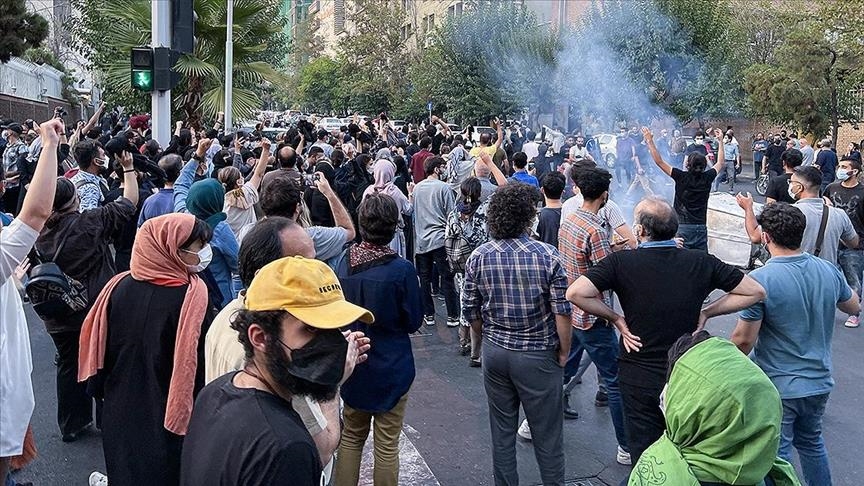It is undeniable that the assassination of Ismail Haniyeh involved cooperation from high-ranking security officials of the Islamic Republic. A member of the National Security Commission of the Parliament has said: “The Israelis have a network of influence inside Tehran and Iran. Malicious elements cooperate with them and have defined themselves within the ‘Mossad’ network.”
According to state news agencies, this member of the National Security Commission emphasized that a more precise and logical level of protection should have been observed, adding: “It is said that a micro-drone carrying a missile was shot towards ‘Haniyeh’s’ room.”
However, this fact is secondary in this specific case because Haniyeh’s elimination is intended to aid a project by Netanyahu and the Israeli government to navigate a serious crisis. The question is, who benefits from such a scenario? Is it only Netanyahu?
Despite being one of the highest-ranking officials of Hamas, Haniyeh pursued a different political approach to achieving peace. His unique stance within the Axis of Resistance against the Assad regime also kept his position fragile. Therefore, his elimination has not caused serious political and organizational damage to Hamas.
Yes, the killings are part of Israel’s brutal apartheid colonial policy and its ongoing genocidal campaign against the Palestinians, for which Israel has always been condemned.
But, Netanyahu seeks to expand the war, and killing Haniyeh in Qatar, Egypt, or especially Turkey, which is a NATO member, would not have served this purpose. However, Haniyeh’s elimination in Tehran could lead to a major war or at least a prolonged cold war, which could significantly help Netanyahu overcome the current crisis. Even if the Islamic regime in Tehran opts for a limited operation and refrains from entering a war (which reformists refer to as national rationality), Netanyahu, by killing Haniyeh in the heart of Tehran and eliminating other senior commanders of Hamas and Hezbollah, has managed to shift the balance in favor of Israel overall and strengthen his position within Israel.
At the same time, Iran’s former ambassador to India and special representative for the Caspian Sea region said in an interview: “The fall of Israel would deal a severe blow to US and the Westerners. They must face the mistake they have made. Instead of allocating a part of Germany for a Jewish state after Hitler’s fall, they freed Europe and the West from the Jews and created a large land and base among Muslim countries.”
He says the assassination of Ismail Haniyeh happened in the capital city and in one of our important political centers. That is, after the inauguration incident, we can say there was a surprise in the country. Overall, we had a statement from the leadership and then a statement from the IRGC, both of which are worth studying. The rest of the reactions to this assassination are just slogans, while they should respect the governance.
The Islamic Republic and Zionism are two wings of imperialism that have been used against the left and socialism in the Middle East. The conflict between these two, however, is important for creating a power balance in the Middle East, especially now that China is entering the region with increasing strength. However, the ongoing tensions are also significant for China in maintaining the North Transit Corridor. While China plays the role of a peacemaker in the Middle East, it also benefits from these tensions.
The Islamic Republic seems to be under pressure to attack Israel. But the language of the officials is something else, which they have not changed since October 7. Moving towards war makes the situation inside Iran more conducive to even bloodier repression. This narrative is being broadcast on national television, with efforts to prepare the minds of the restless and protesting Iranian society ongoing.
If, for the first time in the history of the Islamic Republic, a labor activist in Iran (Sharifeh Mohammadi) faces a death sentence for forming a labor union because officials have interpreted this as an attempt to overthrow the regime, and a social worker (Pakhshan Azizi) also faces a death sentence merely for collaborating with local communities in Rojava, it is clear what a state of war would bring upon that society.
Internal conflicts within the regime could lead Iran into a dark scenario where factions within the regime move from dividing and plundering the country to physically eliminating each other and monopolizing power.
Iranian society, with the onset of the Zhina/Mahsa revolution, has entered a phase where, despite repression, it has imposed significant social achievements on the Islamic Republic. The Islamic Republic cannot return to its previous state without entering into a war.
Conclusion
The assassination of Ismail Haniyeh, while aiding Netanyahu’s agenda, has broader implications for the Middle East. It underscores the fragile nature of political alliances and the continuous struggle for power in the region. This act serves Israel’s strategy to navigate its crises but also pushes the Islamic Republic towards potentially catastrophic decisions.
The internal repression within Iran could intensify, and the conflict between imperialist forces might escalate, impacting regional stability. Iranian society’s progress amidst the Zhina/Mahsa revolution highlights that despite severe repression, significant social changes are occurring. However, the specter of war looms large, threatening to undo these gains and plunge the region into deeper turmoil.









Why would Islamic leaders help in assassination of a peacemaker?
Maybe because they are not looking for peace?